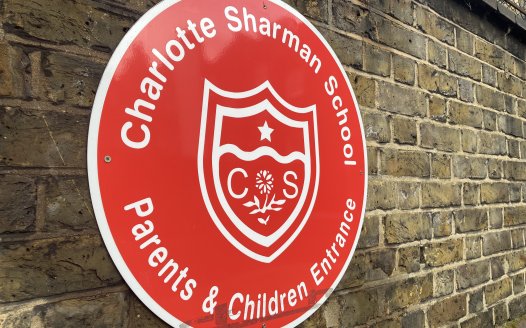Denying a judicial review over a faith school’s expansion was a lamentable decision
Posted: Fri, 14th Feb 2020 by James Brunt
After he was refused permission for a judicial review against Vale of Glamorgan Council, James Brunt says its decision to expand a faith school was based on dubious methodology and defied reasonable logic.
Late last month, with the National Secular Society's support, I attempted to challenge a decision to expand a Church in Wales primary school in the Vale of Glamorgan.
The expansion of St David's School in Colwinston will see Vale of Glamorgan Council and the Welsh government give buildings and land worth £4.2m to the Church in Wales for free. Meanwhile public money will fund the opening of more places in a voluntary aided faith school, where religious education is virtually entirely Christian and where Christianity is used as a basis for school life, which it permeates entirely.
I would have absolutely no objection to my children being taught from the national curriculum, but these church curricula are neither plural nor objective, nor do they foster critical thinking or acceptance, despite platitudes to the contrary.
The council – by its own admission, without any reference to religious demographics, and without any attempt to predict future demand – decided to increase the provision of faith school places in the Vale of Glamorgan.
But we were refused permission for a judicial review hearing – where we intended to assert that Vale of Glamorgan Council breached equality legislation and two significant European human rights conventions. We also specifically alleged that it failed in this regard largely as a result of its irrational methodology which fundamentally underpinned the decision to expand a Church in Wales faith school; as opposed to another non-religious, community school.
The council's dodgy methodology
We argued that Vale of Glamorgan Council failed to consider the impact of this decision on families of other faiths – including those of no religion – and that it used unjustifiable methodology to predict future demand for Church in Wales school places.
Throughout its consultation process and various integrated impact assessments, Vale of Glamorgan Council relied on a 'calculation' that demand for Church in Wales places would be 52% of the total requirement generated by new local housing developments; namely 69 out of 132 new primary places. The council simply used existing provision as a proxy for determining future need, taking absolutely no account of actual levels of religious observance in the area, and making no attempt to forecast.
Essentially, the council's logic was that 52% of current primary places in the relevant catchment area were in primary schools of a Christian character, so future demand was precisely the same. This ignored that fact that provision in this area was already three times higher than the all-Wales average.
Further, given that over the last four decades, the percentage of the population identifying as Christian has fallen dramatically, and the non-religious now constitute a majority, utilising historic demand as a proxy for future requirements is neither plausible nor accurate. Decision-makers should at least analyse these evolving trends, rather than discounting them entirely. Consider the following data from the widely respected British Social Attitudes survey:

And the council, in a rather extraordinary response to a freedom of information request, went as far as admitting: "We do not take religious demographics or data into account when predicting demand for religious schools."
This statement is not contested by the Vale of Glamorgan, nor by the judge who presided over the hearing. Nor did the council contest our allegation that it failed to use any rational method to statistically predict future demand for primary places, using demographic or religious data.
We, however, did rather more research.
The provision of faith schools in the Vale of Glamorgan – and the Western Vale specifically, where the school is located – is extremely high. Seven of the Western Vale's 17 primary schools are Christian (41%); in the Vale as a whole, the figure is 13 out of 51 (25%). Available data shows that across Wales 14% of schools are faith schools. The provision in the Western Vale is three times that figure.
So there is no other local authority in Wales where the choice for those seeking non-religious primary education – like me – is as restricted as the Western Vale.
In isolation these statistics, which seemingly indicate disproportionately high faith school provision, could be insignificant. Perhaps there is an unidentified cause? Perhaps the Vale of Glamorgan is significantly more religious than the rest of Wales?
No actually. It isn't.
According to the last census the Vale of Glamorgan has a Christian population of 58.1%, which is almost entirely analogous with the all-Wales average extracted from the same dataset, of 57.6%. By every measure, these percentages have fallen significantly since 2011, and the data from the BSA survey above – which relies on more objective questioning about religious observance – suggests the figures are far lower. But either way there is no evidence that the Vale is a particularly religious area.
So, given that religiosity in the Western Vale appears to be almost identical to the national average, and that faith school provision, at 41%, is almost three times the all-Wales figure, a significant conclusion-jump is required to approve more faith school places.
The council has said elsewhere that it doesn't know the religious identity of those who will use its schools in future. In a 2018 consultation over the relocation of another school the Vale of Glamorgan Council said the protected characteristics of future new residents emanating from the proposed new development were "unknown" and those of "future occupiers of the school" could "not be known".
In the council's own words, the protected characteristics of the residents who will – at some point in the future - occupy these new housing developments cannot be known. Yet, in its consultation over St David's the council, using egregious methods, claims it can. Weird huh?
The judge's disappointing decision
During our permission hearing the judge acknowledged that using methodology which merely took the current situation as a proxy for future demand was not particularly rational. He said the council could not know – using this method – whether this extrapolation actually provided an accurate forecast, or whether it was simply indicative of the historic locations of church schools, and, therefore meaningless.
However – and it's a big however – he ruled that as the decision-maker, the Vale of Glamorgan Council was at liberty to decide how to calculate future demand for these faith school places. Further, he stated that whilst one does not have to necessarily agree with the decision – nor the rationale [or indeed absence thereof] behind it – he was minded to permit the decision made by the council to stand unchallenged.
This is disappointing for us, for logic and for reason.
Our statistical argument was, and remains, strong. The council's methodology – pertaining to the future predication of demand for religious schooling – remains non-existent. Local authorities are required to give 'due regard' to the equality implications of its policies - but to fulfil this they merely have to state, in no more than a few words, that they have done so. The threshold for due diligence, for a local authority when making a decision of this magnitude, is so frustratingly low.
The problem with faith schools
So, what exactly is my problem with faith schools?
Faith schools occupy a rather unique and privileged position in our legal system. Exemptions in equality law allow them to discriminate on the grounds of religion and belief when recruiting staff and enrolling pupils.
They are additionally exempt – by virtue of the 1944 Education Act – from teaching the national curriculum in religious education. Therefore, the vast majority of these faith schools teach only what is prescribed in the scheme of work for RE issued by the Church in Wales or the Catholic Education Service; highly partisan and biased syllabi which, in terms of substance, and by the admission of headteachers and diocesan education departments, is around 90% Christian. Moreover, and again by their own admission, they teach everything – everything – from a basis of Christianity, and with more than a passing inference of truth.
This was corroborated by correspondence received in January 2020, from a headteacher of a voluntary aided Church in Wales school in North Wales, which said: "Whilst we do include other religions in our curriculum, I would estimate 90% of our RE is Christianity." It added: "Other religions we study are Judaism and Islam… however these religions are merely compared with Christianity. We only consider common beliefs… rather than studying them in any great depth."
Plainly, these RE curricula are neither pluralistic nor objective, and nor do they encourage diversity, tolerance or critical thinking. And next year the right to withdraw children from religious education is due to be rescinded in Wales. My children and others will be subject to state indoctrination in a religious worldview – and meanwhile the schools where this happens are being allowed to expand.
During our case we weren't objecting to the building of a new school per se; merely the religious character of it. We've shown that there was no good reason to believe local residents wanted more faith-based provision – and indeed there was a lack of non-religious provision. We've shown that faith schools don't have to teach religion in an objective way. And yet the church will get what it wants.
What a lamentable outcome.
This is an edited version of a longer blog from the author on his own website. It's reproduced here with kind permission.
While you're here
Our news and opinion content is an important part of our campaigns work. Many articles involve a lot of research by our campaigns team. If you value this output, please consider supporting us today.








